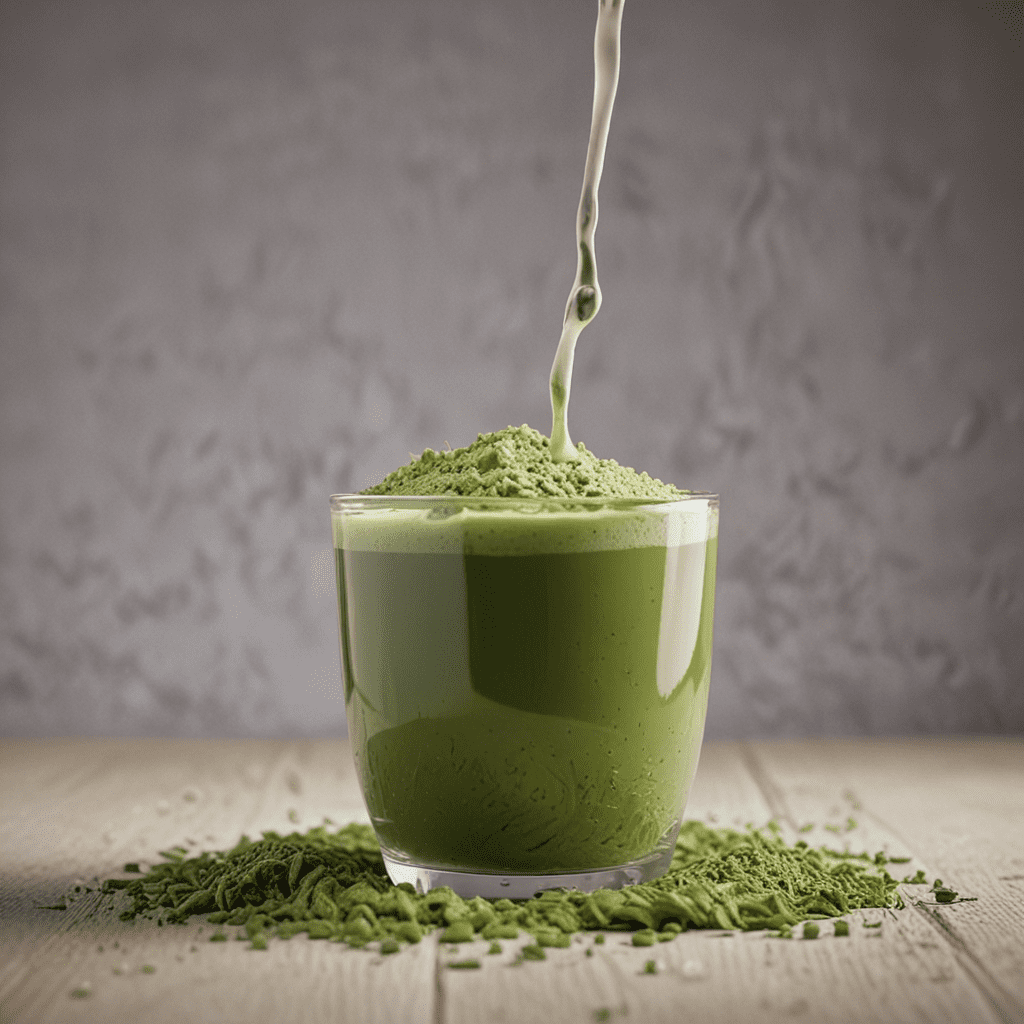Introduction: Matcha and Thyroid Health
Matcha, a vibrant green tea powder, has gained popularity for its rich nutritional profile and potential health benefits. Recent research has shed light on matcha's intriguing impact on thyroid health, hinting at its potential as a complementary therapy. This article delves into the interplay between matcha and thyroid function, exploring its antioxidant effects, iodine content, and implications for thyroid imbalances.
Understanding Matcha and Its Nutrients
Matcha is obtained from shade-grown tea leaves, which are carefully harvested and stone-ground into a fine powder. This unique process intensifies its nutritional content, making it a concentrated source of antioxidants, vitamins, and minerals. Catechins, a type of polyphenol, are particularly abundant in matcha, known for their potent antioxidant and anti-inflammatory properties.
Matcha's Impact on Thyroid Function
The impact of matcha on thyroid function is multifaceted. Catechins, with their antioxidant capabilities, may protect thyroid cells from oxidative stress, a major contributor to thyroid dysfunction. Additionally, matcha contains theanine, an amino acid that promotes relaxation and may reduce anxiety, a common symptom associated with thyroid imbalances.
Antioxidant Effects on Thyroid Health
The potent antioxidant properties of matcha may positively influence thyroid health. Research suggests that antioxidants can neutralize free radicals, unstable molecules that can damage thyroid cells and contribute to inflammation. By neutralizing these free radicals, matcha may help protect the thyroid from oxidative stress, promoting optimal function.
Iodine Content and Thyroid Metabolism
Iodine is an essential nutrient for proper thyroid hormone production. Matcha contains a small amount of iodine, which can contribute to thyroid hormone synthesis. However, it is important to note that the iodine content in matcha is not significant enough to serve as a primary source of iodine and cannot replace other dietary sources.
Potential Impact on Hypothyroidism
Matcha may have implications for individuals with hypothyroidism, a condition characterized by an underactive thyroid gland. Catechins, the primary antioxidants in matcha, have been shown to inhibit the activity of thyroid peroxidase (TPO), an enzyme involved in thyroid hormone synthesis. While further research is needed, studies suggest that consuming matcha may potentially interfere with thyroid hormone production in individuals with hypothyroidism.
Matcha's Role in Thyroid Autoimmune Disorders
Some studies indicate that matcha may influence thyroid autoimmune disorders, such as Hashimoto's thyroiditis. These disorders involve the immune system attacking the thyroid gland, leading to inflammation and reduced thyroid function. Compounds in matcha, such as L-theanine, possess anti-inflammatory properties that may help alleviate inflammation associated with thyroid autoimmune disorders.
Interference with Thyroid Medications
It is crucial to be aware of potential interactions between matcha and thyroid medications. Some studies suggest that compounds in matcha, particularly catechins, may interfere with the absorption and metabolism of thyroid medications, such as levothyroxine. It is recommended to consume matcha several hours apart from thyroid medication to avoid any potential interactions.
Optimal Consumption for Thyroid Health
The optimal consumption of matcha for thyroid health can vary depending on individual circumstances. Individuals with thyroid imbalances may consider consuming matcha in moderation, around 1-2 cups per day, to avoid potential interference with thyroid function or medications. It is always advisable to consult with a healthcare professional before consuming substantial amounts of matcha, especially if you have thyroid-related concerns.
Conclusion: Matcha as a Complementary Therapy
Matcha, with its rich antioxidant content and potential effects on thyroid function, may serve as a complementary therapy for individuals with thyroid imbalances. Its antioxidant properties may protect the thyroid from oxidative stress, while its L-theanine content may help reduce anxiety. However, individuals with hypothyroidism or thyroid autoimmune disorders should exercise caution and consult with a healthcare professional before consuming matcha due to potential interference with thyroid hormone production or medication absorption. When consumed in moderation, matcha can be a valuable addition to a healthy diet, potentially supporting thyroid health as a complementary therapy.
FAQs
Can matcha help with thyroid nodules?
While some studies suggest that matcha may possess anti-inflammatory properties, its direct impact on thyroid nodules requires further research.
What is the recommended amount of matcha to consume daily?
The optimal consumption of matcha for thyroid health can vary. Individuals with thyroid concerns may consider consuming around 1-2 cups per day.
Can matcha interfere with thyroid blood tests?
Matcha may contain polyphenols that have the potential to interfere with thyroid blood tests. It is advisable to avoid consuming matcha before undergoing thyroid blood tests.
Is matcha suitable for individuals with Hashimoto's thyroiditis?
Matcha's impact on Hashimoto's thyroiditis is still being investigated. Individuals with Hashimoto's should consult with a healthcare professional before consuming matcha.
Can matcha interact with other thyroid supplements?
Matcha may potentially interact with other thyroid supplements, such as iodine supplements. It is recommended to consult with a healthcare professional before combining matcha with other thyroid supplements.


